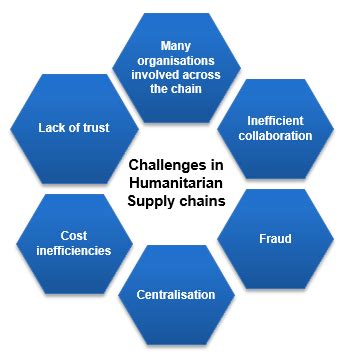The Importance of Supply Chain Management in Electronics Manufacturing
Supply chain management is the process of overseeing the flow of goods and services from the point of origin to the point of consumption. In the electronics manufacturing industry, supply chain management is particularly important because of the complex nature of the products being produced and the global nature of the supply chain.
Effective supply chain management can help electronics manufacturers:
- Reduce costs
- Improve quality
- Increase efficiency
- Enhance customer satisfaction
On the other hand, poor supply chain management can lead to:
- Delays in production
- Increased costs
- Quality issues
- Damage to reputation
Top Challenges of Supply Chain Management in Electronics Manufacturing
1. Sourcing Raw Materials
One of the biggest challenges in electronics manufacturing is sourcing raw materials. The electronics industry relies heavily on rare earth metals and other specialized materials that can be difficult to obtain. Additionally, the global nature of the supply chain means that materials may need to be sourced from multiple locations around the world.
To overcome this challenge, your PCB contract manufacturer can:
- Develop relationships with reliable suppliers
- Diversify sourcing to reduce risk
- Implement just-in-time inventory management to reduce carrying costs
2. Managing Inventory
Another significant challenge in electronics manufacturing is managing inventory. With the rapid pace of technological change, products can quickly become obsolete, leading to excess inventory and increased costs. On the other hand, not having enough inventory can lead to production delays and missed sales opportunities.
To effectively manage inventory, your PCB contract manufacturer can:
- Implement real-time inventory tracking systems
- Use forecasting tools to predict demand
- Establish safety stock levels to buffer against supply chain disruptions
3. Ensuring Quality
Quality is critical in the electronics manufacturing industry. Even minor defects can lead to product failures and damage to a company’s reputation. Ensuring quality throughout the supply chain can be a significant challenge, particularly when working with multiple suppliers and subcontractors.
To ensure quality, your PCB contract manufacturer can:
- Implement rigorous quality control processes
- Conduct regular audits of suppliers and subcontractors
- Use automated testing and inspection equipment
4. Managing Logistics
Logistics is another critical component of supply chain management in electronics manufacturing. With products being shipped all over the world, managing transportation and customs compliance can be a significant challenge.
To effectively manage logistics, your PCB contract manufacturer can:
- Work with experienced logistics providers
- Implement real-time tracking systems
- Develop contingency plans for supply chain disruptions
5. Responding to Changing Demand
Finally, one of the biggest challenges in electronics manufacturing is responding to changing demand. With the rapid pace of technological change and shifting consumer preferences, demand for electronics products can be highly volatile.
To respond to changing demand, your PCB contract manufacturer can:
- Use forecasting tools to predict demand
- Implement flexible manufacturing processes
- Develop relationships with multiple suppliers to ensure access to raw materials
How Your PCB Contract Manufacturer Can Help
While the challenges of supply chain management in electronics manufacturing can be significant, working with an experienced PCB contract manufacturer can help you overcome these obstacles. Here are some of the ways your PCB contract manufacturer can help:
1. Expertise and Experience
PCB contract manufacturers have extensive expertise and experience in managing supply chains for electronics manufacturing. They can provide valuable insights and guidance on sourcing materials, managing inventory, ensuring quality, and responding to changing demand.
2. Established Relationships
PCB contract manufacturers have established relationships with suppliers and logistics providers around the world. These relationships can help ensure access to raw materials, reduce costs, and improve efficiency throughout the supply chain.
3. Advanced Technology
PCB contract manufacturers often have access to advanced technology and equipment that can help streamline supply chain management. For example, they may use automated testing and inspection equipment to ensure quality, or real-time tracking systems to monitor inventory levels and shipments.
4. Flexibility and Scalability
PCB contract manufacturers can provide flexibility and scalability to help electronics manufacturers respond to changing demand. They can quickly ramp up or down production as needed, and can provide a range of manufacturing services to meet specific needs.
5. Cost Savings
Finally, working with a PCB contract manufacturer can help electronics manufacturers reduce costs throughout the supply chain. By leveraging the expertise and economies of scale of a contract manufacturer, companies can reduce carrying costs, improve efficiency, and focus on their core competencies.

Conclusion
Supply chain management is a critical component of success in the electronics manufacturing industry. From sourcing raw materials to delivering finished products, the supply chain plays a vital role in ensuring quality, efficiency, and customer satisfaction. While the challenges of supply chain management can be significant, working with an experienced PCB contract manufacturer can help electronics manufacturers overcome these obstacles and achieve their goals.
FAQs
-
What is supply chain management in electronics manufacturing?
Supply chain management in electronics manufacturing refers to the process of overseeing the flow of goods and services from the point of origin to the point of consumption. This includes sourcing raw materials, managing inventory, ensuring quality, managing logistics, and responding to changing demand. -
What are some of the biggest challenges in supply chain management for electronics manufacturing?
Some of the biggest challenges in supply chain management for electronics manufacturing include sourcing raw materials, managing inventory, ensuring quality, managing logistics, and responding to changing demand. -
How can a PCB contract manufacturer help with supply chain management?
A PCB contract manufacturer can help with supply chain management by providing expertise and experience, established relationships with suppliers and logistics providers, advanced technology and equipment, flexibility and scalability, and cost savings. -
What are some of the benefits of effective supply chain management in electronics manufacturing?
Some of the benefits of effective supply chain management in electronics manufacturing include reduced costs, improved quality, increased efficiency, and enhanced customer satisfaction. -
What are some of the risks of poor supply chain management in electronics manufacturing?
Some of the risks of poor supply chain management in electronics manufacturing include delays in production, increased costs, quality issues, and damage to reputation.
| Challenge | Description | How a PCB Contract Manufacturer Can Help |
|---|---|---|
| Sourcing Raw Materials | Difficulty obtaining rare earth metals and other specialized materials from multiple global locations | – Develop relationships with reliable suppliers – Diversify sourcing to reduce risk – Implement just-in-time inventory management |
| Managing Inventory | Balancing excess inventory costs with production delays and missed sales opportunities | – Implement real-time inventory tracking systems – Use forecasting tools to predict demand – Establish safety stock levels |
| Ensuring Quality | Preventing defects that can lead to product failures and damage to reputation | – Implement rigorous quality control processes – Conduct regular audits of suppliers and subcontractors – Use automated testing and inspection equipment |
| Managing Logistics | Coordinating transportation and customs compliance for global shipments | – Work with experienced logistics providers – Implement real-time tracking systems – Develop contingency plans for supply chain disruptions |
| Responding to Changing Demand | Adapting to volatile demand driven by technological change and shifting consumer preferences | – Use forecasting tools to predict demand – Implement flexible manufacturing processes – Develop relationships with multiple suppliers |






Leave a Reply